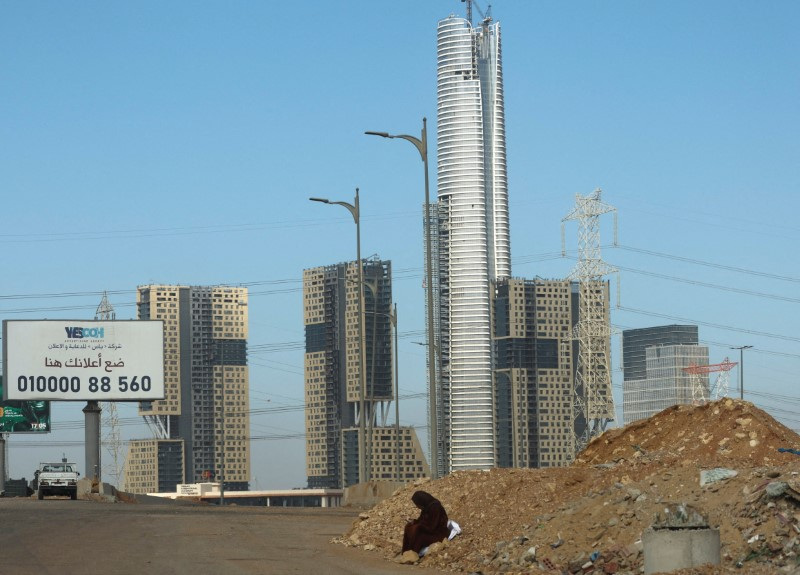
The Saudi company has plans to construct a hydrogen-powered skyscraper in the new capital of Egypt
A Saudi-controlled real estate business says it intends to begin ground early next year in Egypt’s new capital on a $1 billion, 50-story office tower that will be the first of its type to be powered by pure hydrogen.
The sophisticated design and exorbitant price tag are a gamble by Magnom Properties, a subsidiary of Saudi industrial giant Rawabi Holding, that foreign clientele would flock to the future capital, a metropolis of over 6 million people being created from scratch in the desert east of Cairo.
It is also a gamble on clean hydrogen, which is created using renewable energy but has yet to be demonstrated on a large scale, as Egypt strives to establish itself as a green energy powerhouse in the face of regional competition.
Ministries were relocated to the city in July 2023, but few inhabitants have moved in, and infrastructural building, including train linkages, is still underway.
Magnom will shortly begin the design of the Forbes International Tower, with plans to finish the structure by 2030, according to Karim Dayhoum, the company’s executive director of projects.
It secured site for the skyscraper in 2021 in the new capital’s commercial center and is currently selecting land for sister projects in Dubai and Riyadh.
“We want to offer our tenants and our buyers and investors the opportunity to utilise the facilities and amenities across the region,” Dayhoum said during a telephone conversation. “It’s a network of sophisticated office space.”
The new capital is the most ambitious of a number of megaprojects planned by Egyptian President Abdel Fattah al-Sisi.
They have accelerated infrastructure development while simultaneously straining the budget, increasing debt, and sucking up foreign cash, prompting the government to limit public investment under pressure from the International Monetary Fund.
Investors see opportunity in Egypt’s strategic position and vast workforce, but the economy has long been plagued by mismanagement and low efficiency.
Critics argue that the new capital does not appeal to regular Egyptians.
The $1 billion price tag for a single skyscraper, along with its high-luxury style, is unprecedented for Egypt. The remaining Chinese-built commercial sector, which includes 20 skyscrapers, is anticipated to cost $3 billion.
According to the designs, the skyscraper would include modern cyber security measures, two ultra-fast VIP elevators, and a helipad. It was designed by Chicago-based architects Adrian Smith and Gordon Gill in collaboration with Forbes media.
It also plans to be the first net-zero carbon tower in the Middle East and North Africa. Solar panels placed in the facade should provide 25% of the power consumed, with the remainder coming from clean hydrogen supplied to the building in liquid form.
“We’re trying to completely eliminate any sort of reliance on utilities,” said Dayhoum, who added that land owners were given incentives for sustainable design.
That might also assist defend against local system disruptions; Egypt has had persistent power outages due to natural gas shortages.
According to Ahmed Kassem, Magnom’s chief investment officer, the skyscraper would be funded using a variety of debt equity mechanisms.
“We’re still at a group level discussing whether to retain full ownership of the building,” he informed me.
All Categories
Recent Posts
Tags
+13162306000
zoneyetu@yahoo.com



